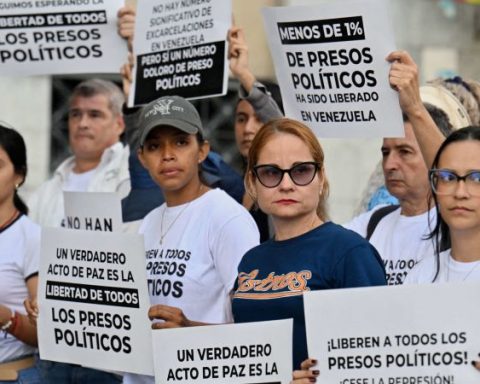PPD Senator Ricardo Lagos Weber referred to the option that Chile finally signs the Comprehensive and Progressive Treaty of Trans-Pacific Association (TPP11), which has been on the table for a long time and that both the Government of Sebastián Piñera and the current one of the President Gabriel Boric have refused to sign (until now, in the latter case).
in conversation with The counterthe parliamentarian – who supports the signing of the treaty – addressed the approaches that the current Executive has had to sign the agreement and the obstacles that may appear in Congress, since not all parliamentarians are in favor.
-What do you think that the Government has decided to analyze the treaty?
-This was a government commitment: that after the Plebiscite the ratification of the CPTPP would be addressed. Some of us support this postponement, at the time, due to the constitutional debate, but now this discussion must be reactivated. The Government has told us that some time ago it had proposed to the members of the CCTPP to modify the investor-State dispute settlement mechanisms through the mechanism of side letters bilateral. Our opinion is that the CPTPP can be ratified and these conversations, which could be long-term, continue to advance. It is a good sign that the Government, and this new cabinet, has decided to take a course of action, since it would not only allow our exporters of different sizes to participate in the commercial exchange, but also this could be a great engine to attract more investment to the country.
-What obstacles would there be in the Senate to approve the project?
– Both in the Foreign Relations commission and in the Treasury commission of the Senate, they were approved with large majorities. In both instances there were two rounds of dialogue with various civil society organizations, experts have been heard and most already have a formed opinion.
-In what sectors of the ruling party would there be opposition to the treaty?
-It is known that there are sectors within the government coalitions that have a very critical view of this treaty and I think it would be very good to clear up all the doubts they have. The discussion of the CPTPP is riddled with “fake news” and the benefits it would bring to our country have not been widely disseminated. All in all, it is good news that the multiple and different questions about the CPTPP have been reduced to just one: the investor-State dispute resolution mechanism.
-How would the approval of the treaty impact Chile?
-Although our country has a wide network of trade agreements, being in a treaty of this type opens up even more opportunities for us. From another angle, it allows Chile to return to one of the most important agreements in the Asia Pacific. Furthermore, Chile being one of the founding countries of this agreement, we were the ones who defined the rules. We are not “rule takers” but “rule setters”. I am convinced that there are more advantages than disadvantages in ratifying this agreement. There were teams of Chilean professionals who worked for a long time to be able to sign this treaty, which materialized in the Government of President Bachelet. Our modernization agreement with the European Union is added to the CPTPP, which we hope can be resolved shortly. Every time our country postpones these decisions, it is other nations that occupy that space and Chile loses opportunities and influence.


















